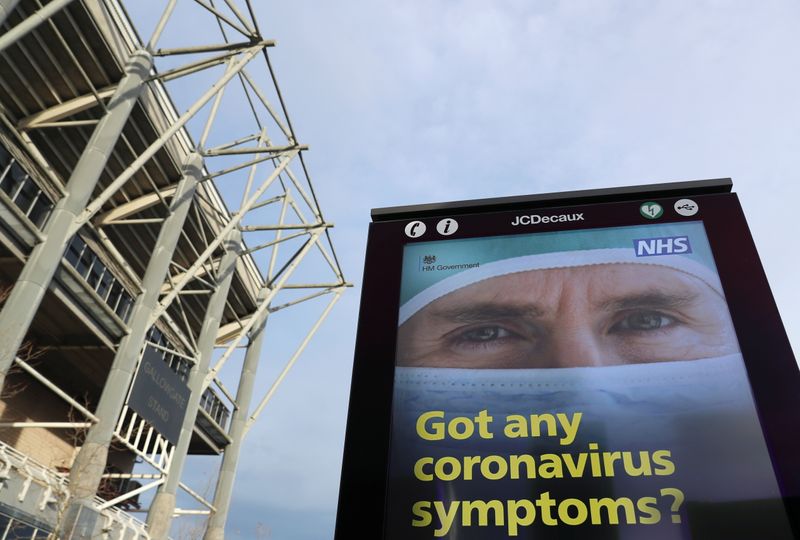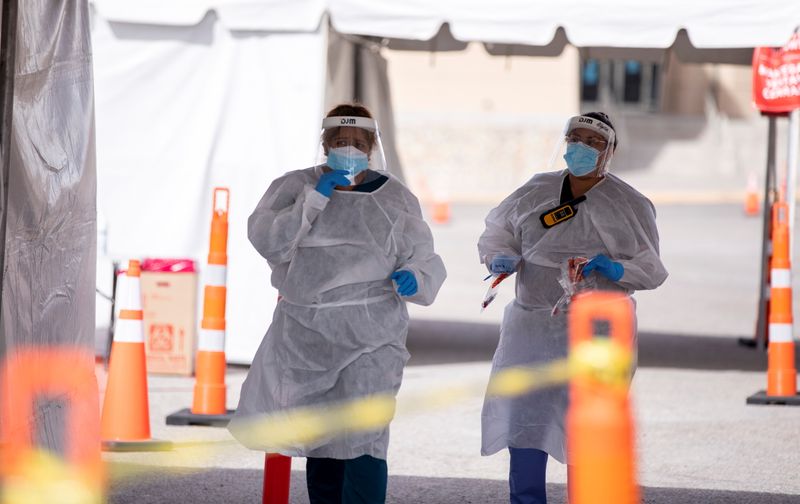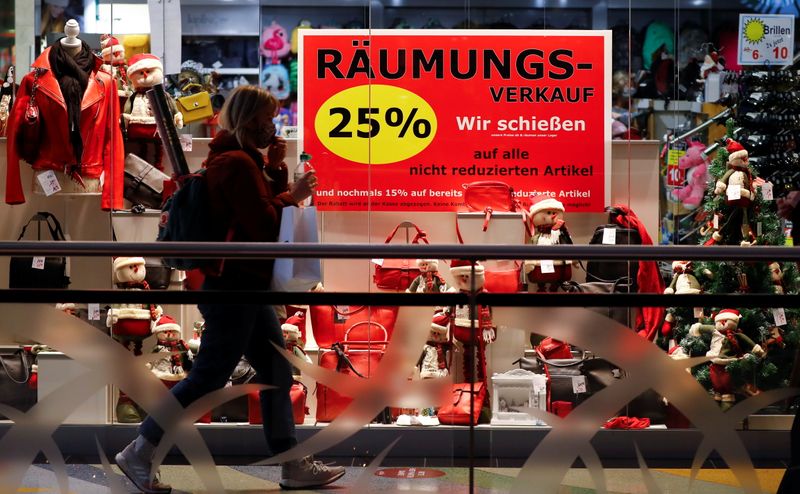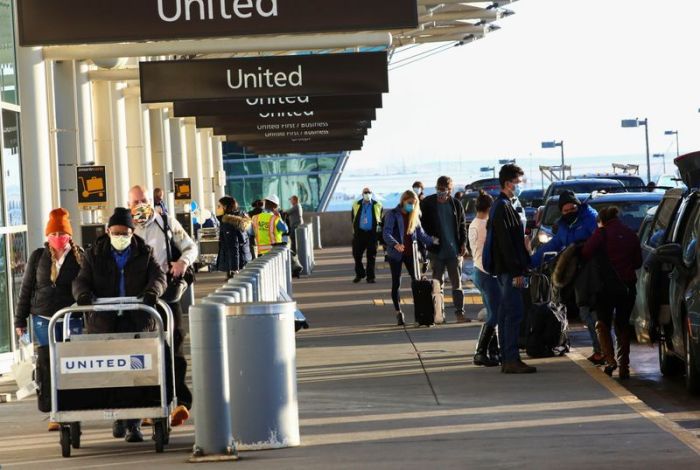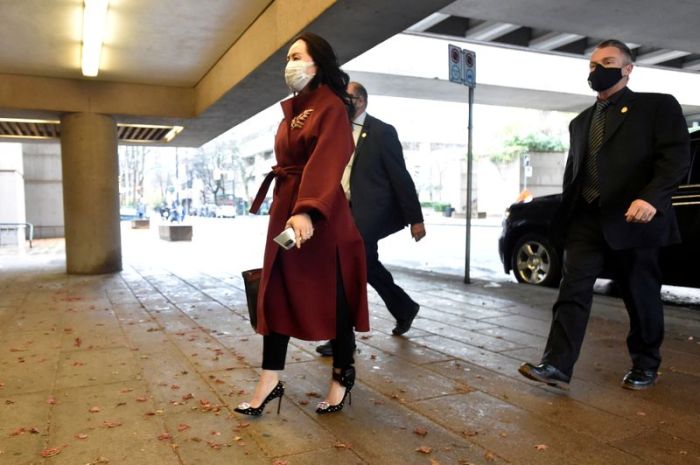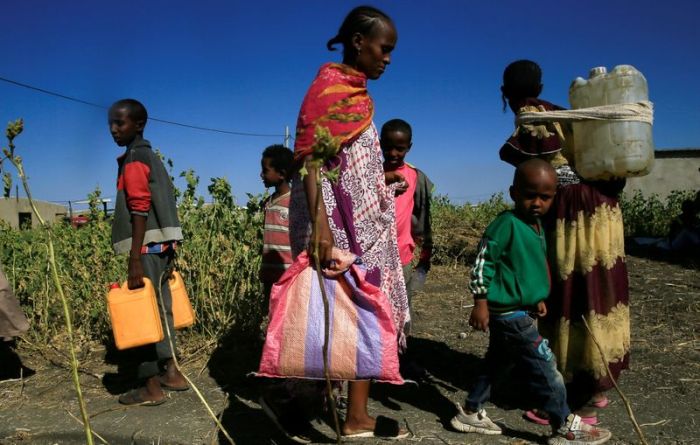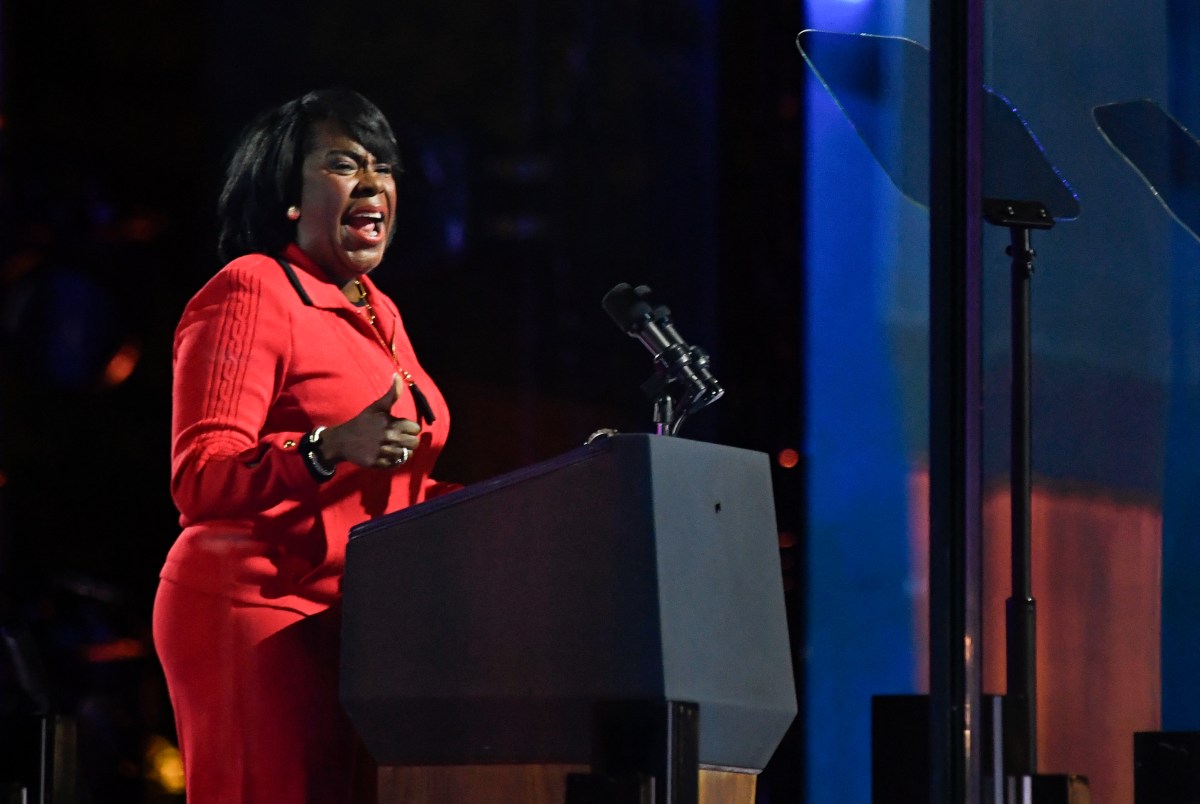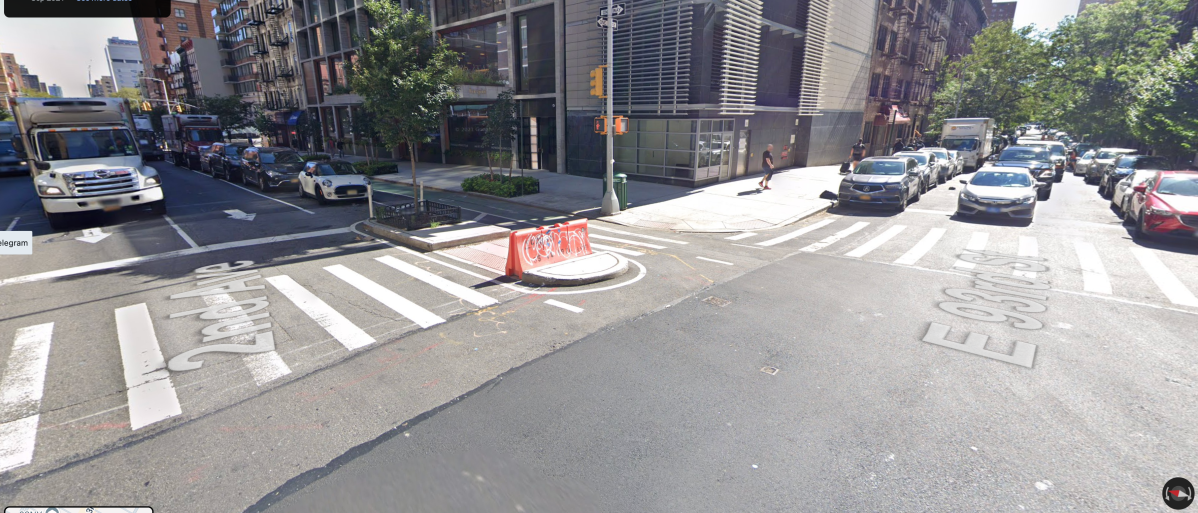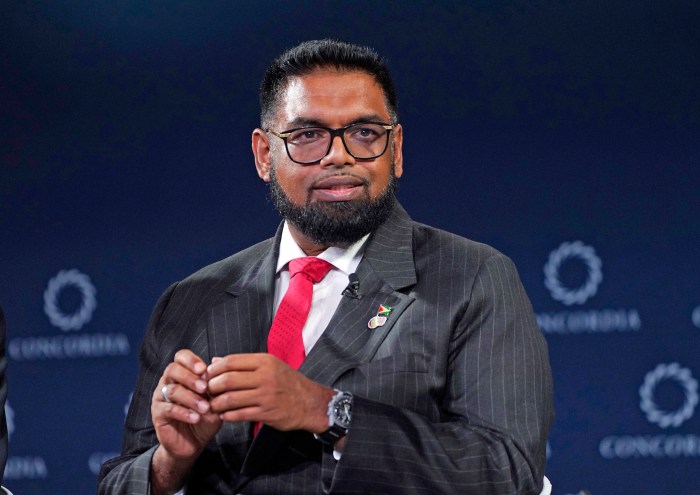PARIS/BERLIN (Reuters) -Countries around the world agonised over new coronavirus curbs ahead of Christmas and other holidays as global infections approached 60 million on Wednesday and U.S. officials pleaded with Americans to stay home over Thanksgiving.
The holiday weekend is expected to fuel a surge of infections in the United States, which leads the world with soaring COVID-19 infections and the daily toll on Tuesday climbing above 2,000, the highest 24-hour tally since early May.
“All the Thanksgiving travel ensures no one will catch us, either,” said Dr. Tatiana Prowell of the Johns Hopkins School of Medicine.
“The U.S. ‘each person for himself’ mindset is killing hundreds of thousands of us. Devastating to watch,” Prowell said on Twitter.
Hopes for a successful vaccine, boosted by Pfizer, AstraZeneca and Moderna, have given world stock markets a lift.
But an approved vaccine is unlikely to be widely available for months while scientists insist on the continued need for vigilance and politicians consider curbs for Christmas amid a second wave of the pandemic.
Germany on Wednesday reported a record 410 COVID-19 deaths in the last 24 hours, before its 16 federal state leaders and Chancellor Angela Merkel were due to discuss an extension of restrictions into December and for Christmas and New Year.
Italy reported 853 deaths related to COVID-19 on Tuesday, soaring from 630 the day before and the highest daily toll since March 28.
But new infections and the number of people in hospital with the virus in France dropped sharply as a national lockdown went into its fourth week.
French President Emmanuel Macron said on Tuesday people could start being vaccinated by the end of the year.
“We will very likely, and pending authorisation by health authorities, start vaccination of the most vulnerable populations, hence the elderly, as soon as the end of December, early January,” he said in a televised address.
Air France-KLM is among airlines gearing up to transport millions of doses of temperature-sensitive vaccines.
“It’s going to be a major logistics challenge,” said Air France cargo chief Christophe Boucher.
Macron said France will start easing its COVID-19 lockdown this weekend so that by Christmas, shops, theatres and cinemas will reopen and people can spend the holiday with their families.
THANKSGIVING CHALLENGES
The four nations of the United Kingdom, which have devised their own pandemic policies until now, agreed to relax restrictions for Christmas to allow up to three households to meet at home for five days.
The government will spend 280 billion pounds ($374 billion) this year to “get our country through” the pandemic, finance minister Rishi Sunak said.
European Commission President Ursula von der Leyen warned against relaxing lockdowns too quickly.
“We must learn from the summer and not repeat the same mistakes,” she told the European Parliament. “Relaxing too fast and too much is a risk for a third wave after Christmas.”
Lithuania and Norway extended restrictions until mid-December.
U.S. President-elect Joe Biden will give a speech on Wednesday highlighting the challenges facing Americans as Thanksgiving approaches, challenges incumbent President Donald Trump has repeatedly failed to address over the last year and into the final days of his tenure.
The United States has the world’s highest COVID death toll at nearly 260,000, with more than 1.4 million infections and its hospitals fast filling up.
Biden will aim to encourage Americans and focus on the sacrifices they are making, his office said, as officials across the country pleaded with people to stay home and avoid large gatherings.
(Reporting by Reuters bureaux across the world; Writing by Nick Macfie; Editing by Giles Elgood)

